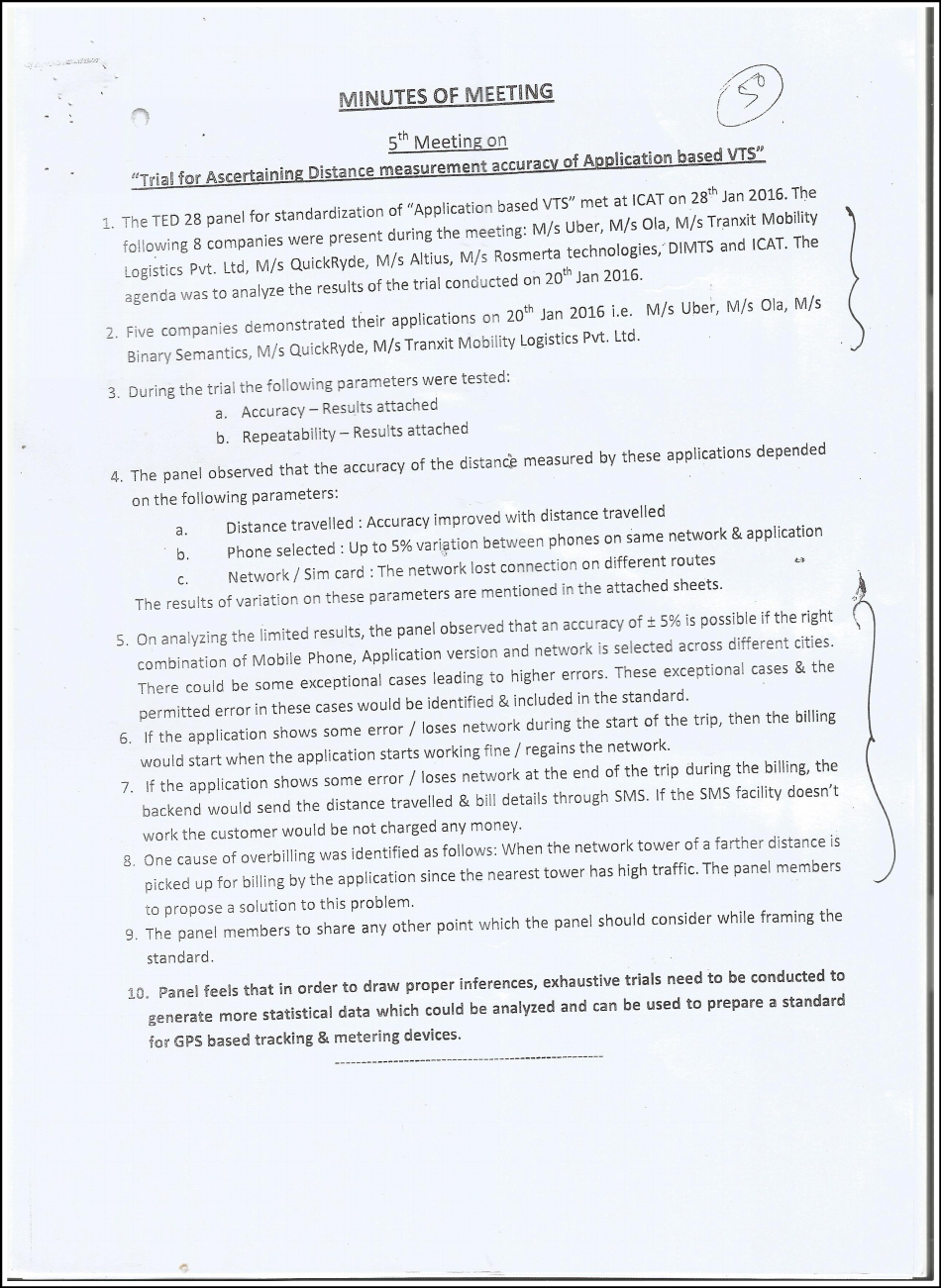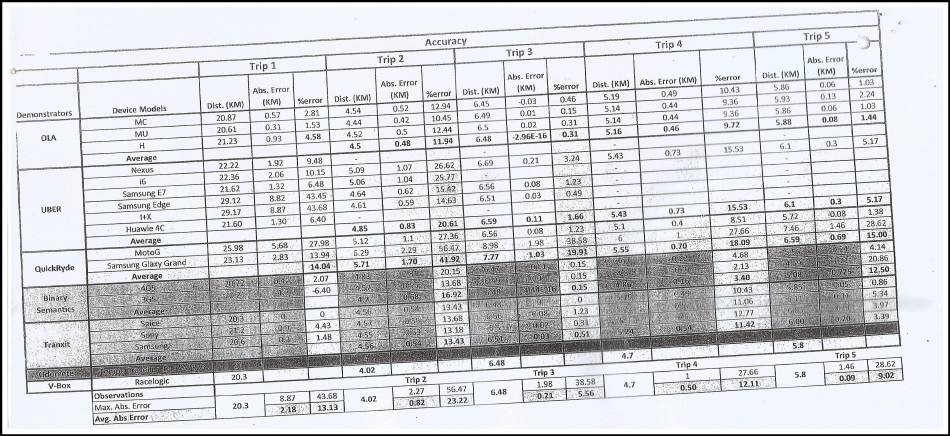[orc]Ministry of Road Transport and Highways (MoRTH) recently released the new Taxi guidelines for Urban Mobility. Documents obtained using RTI indicate that the guidelines were based on unscientific testing.
Ministry of Road Transport and Highways (MoRTH) in a recent consultation for Taxi policy guidelines has invited comments from taxi operators including Association of Radio Taxis, Ola and Uber. MoRTH has taken submissions from these market players who have recommended a shift towards GPS based distance measurement using smartphone for fare calculation and making physical meters optional. Factly has obtained these submissions & report of an earlier committee constituted to evaluate the feasibility and measurement accuracy of using GPS using the RTI.
Committee concludes that error rates could be between 5-10%
The TED 28 committee constituted to evaluate the feasibility and measurement accuracy of using GPS has concluded the error rates can be minimal between 5-10% based on unscientific measurement testing. The committee has conducted a field trial to measure and compare distances measured using GPS and car odometer to compute the magnitude of errors. Five transport companies M/S Uber, M/S Ola, M/S Binary Semantics, M/S QuickRyde, M/S Tranxit Mobility Logistics Pvt. Ltd demonstrated their GPS based measurement applications using five trial trips in Delhi. The data from these trips shows varying error rates across these transport companies with some reporting an absolute error greater than 40% on various smartphones. The test cases are biased as each company used a different smartphones making it scientifically wrong to compare the results.


The accuracy of the GPS based measurement
The accuracy of GPS based measurement using smartphones depends on several factors, one of the important ones is the quality of the GPS sensor used in the smartphones. Cheap Chinese smartphones could give you a lower precision compared to a costly American counterpart. Apart from the sensor the operating system(OS) running in these phones could be different and thus amounts to further variation across different OS versions with the same phones. GPS data is not going to be accurate without errors and thus the distance measurement falls down to the algorithm being used by each company to measure this distance. With so many varying factors, the trials performed by MoRTH committee is unscientific to accept these trials as proof to conclude GPS based measurements can be used for fare calculation.
While the panel still feels more comprehensive trails need to be carried out to draw better inferences, the panel still explicitly notes that +/- 5% error rates are possible and gave recommendations on their usage to the ministry. The ministry appointed panel has clearly erred by inferring wrong conclusions based on these preliminary trials and hence the recommendations should be re-evaluated. The urban transport taxi guidelines issued later based on these recommendations suggest an audit by Standardisation Testing and Quality Certification (STQC) for a one time only test of the fare calculation algorithm. Algorithms for calculating fares have been changed a lot of times since the entry of aggregator services, this one time only audit is not a valid argument and definitely undermines consumer protection.
What about Data Privacy?
The guidelines issued by MoRTH also talk about the need for aggregators to explicitly ask consumer permission whether their trips data should be stored by aggregator or not. Aggregators not only record data of consumer trip through driver application but also continuously monitor consumer’s location. The infamous uber’s rides of glory blog post talks about how dangerous this data can be for people to access and spy on someone’s life. At the end of all of this, whether it is fare or private data, it’s algorithms which are dictating the terms for consumers without any protection from the state. A recent study conducted by Centre for Internet and Society on “Big Data Governance in India” looks into the benefits and harms of Intelligent Transportation Systems cautioning of the potential privacy issues. Privacy has become a larger issue in India with the rise of digital services and government needs to act on this further. The ministry has not taken any inputs from general public other public research institutions on this matter for the consultation and leaves the consumers at the mercy of these companies and state governments who are not known for enforcing the rule of law.
It would be a mistake to assume it’s only private players which are collecting this data or using biased and predatory fares through algorithms. Delhi Integrated Multi-Modal Transit System Ltd. (DIMTS), a public private partnership of Delhi government made GPS and panic button mandatory in fare meters of every auto rickshaw post the Nirbhaya incident. DIMTS has the data of every auto rickshaw, black taxis in Delhi and has signed a contract with MoRTH to install CCTV cameras, GPS systems, panic buttons across all transport vehicles in the country. Commuters need privacy and protection from discriminatory practices from government institutions itself. Hence the need for an independent autonomous institution to monitor these violations and set various frameworks for the industry.
When Uber, Ola started services in India, they were not recognized under the laws of the country and have always been operating under grey areas of the law. Ignoring the question of whether they are easy to use for citizens, good for cities to reduce traffic, the rule of law is paramount. Uber has always violated several of these rules including consumer and employee rights in the name of disruption. Disruption of the laws is illegal whether it is businesses or individuals. One needs to be cognizant of the fact that laws need reforms and not disruption. These strategies of disruption ignoring the laws by startups and venture capitalists is a serious issue that needs to be looked into. It’s about time the government looks into these issues as a whole and not venture into each sub sector of transport with new rules conflicting itself at various stages.



1 Comment
A 5% error is way better than 50-100% meter tampering!